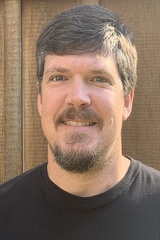David Doughty brings Mountain Discovery Charter School a wide range of educational and professional experience. David grew up in central Georgia but attended Western Carolina University graduating with a B.S. in Geology. He then went on to receive a M.S. in geology from the University of North Carolina at Wilmington. After graduating, David worked in Naples, Florida as a coastal geologist specializing in beach management. He then relocated to Atlanta, Georgia where he continued working as a geologist before eventually changing careers and forming his own real estate lending company along with his brother. After eight years of successfully running his company, David sold his interest and moved to Kentucky to pursue separate degrees in teaching and theology. David earned an M.A. in secondary education from the University of Kentucky and an M.A. in ministry from Asbury Theological Seminary.
With graduate degrees in both science and education, David brings a well-rounded and academically sound level of instruction to his science students. David believes that all children are born learners, and he strives to deliver a level of personalized instruction that taps into the learning potential of every child. David wants to cultivate in his students a passion for exploring the world around them and teach students to ask the probing questions that help make sense of their world.
David returned to Western North Carolina in 2018 along with his lovely wife Melissa and their two daughters, Olivia and Charlotte. David enjoys spending time with his family, hiking, traveling, and reading as often as possible. He is happiest when he can do all four in the beautiful Blue Ridge Mountains.
Supply List

Recent Comments